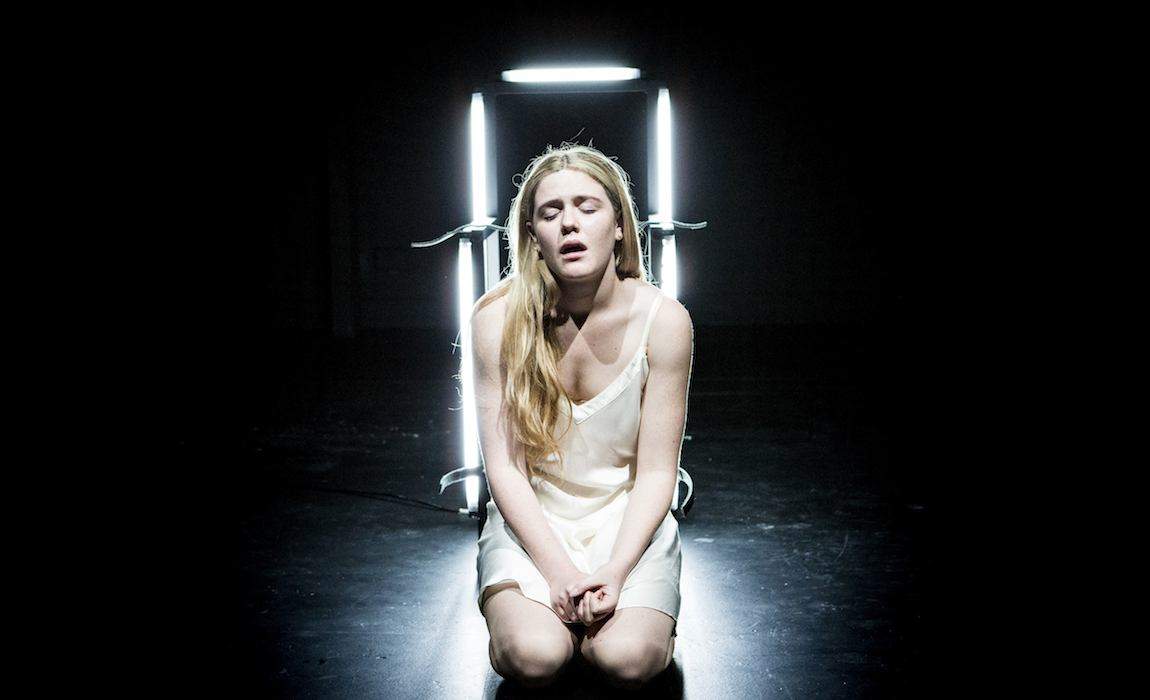Machinal – Sydney Theatre Co
You never knew you had so much in common with a woman sent to the electric chair.
Overview
Every woman I spoke to immediately after Machinal said some version of the same thing: "I related to it so much". This is mainly remarkable because Machinal is a play written in the 1920s about a woman given the electric chair after committing murder.
But that gruesome end is not how we meet the nameless young woman, played with exquisite nervous energy by Harriet Dyer. She's working in an office, surrounded by the dizzying clicking of pens, chirping of phone voices and fake unanimity of crowds. But the VP of the company, true skeez Mr Jones (Brandon Burke), has become obsessed with her delicate hands and perceived innocence, and he proposes marriage.
After some deliberation, she accepts, rationalising that it's what she's 'supposed to do'. What follows is an excruciating yet sickly funny wedding night scene in which he tries to coax her out of her clothes in their hotel room, while she wraps herself around the toilet bowl, gagging from his very touch. She goes on to give birth to a baby she can't fathom, and when she does eventually experience love and desire, it's both a blessing and a curse.
Our young woman is clearly disturbed — her thoughts come out in a running, associative mess, and the ultimate leap of logic that leads her to kill her husband is not exactly solid. But the individual instances of feeling detached from what's expected from you, as if you've slipped off some path — Machinal bets that we've all been there, and it recoups massively.
It's hard to believe Machinal was written in 1928, so contemporary does it often feel in voice, style and theme. It leaves the naturalism still prevalent at the time and explores an expressionistic inner world, preempting much of the playwriting of the 20th century. That it was written by a pioneering female journalist, Sophie Treadwell, covering the trial of murderer Ruth Snyder represents a profound act of empathy, and that it was found and chosen by director Imara Savage and the Sydney Theatre Company now is inspired and inspiring. This is not a very well-known work, but perhaps it should be.
There's an impressive use of minimal staging to match the heightened emotion. A rod of fluorescents dominates the lighting and configures the space, from hotel room to dive bar, homestead to execution chamber. The few other set elements are strong and, morbidly, mostly various chairs, tumbling us toward the dark conclusion. It's simple and stunning work from Savage with designer David Fleischer and lighting designer Verity Hampson.
Dyer's construction of a complicated woman on the brink is impeccable, and the supporting cast around her, slipping into various roles, never misses a beat. I know I'll remember this play years from now; secure your own seat post-haste at a rare theatrical experience with the power to disturb and comfort at once.
Image by Brett Boardman.





